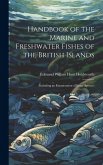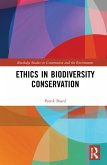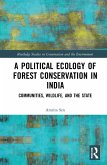Freshwater fishes are the most diverse vertebrate group, with almost 36,000 species described so far, and more species are being discovered all the time, evenly distributed between marine and freshwater habitats. Freshwater ecosystems serve as a habitat for more than 18,000 fish species, occupying less than 1% of the Earth's surface. Among all ecosystems, inland waters are one of the most affected. Wetlands are disappearing three times faster than forests, and freshwater populations decrease faster than terrestrial biodiversity. Nowadays, freshwater fishes may be considered the most threatened vertebrate group. Understanding the ecological subjects, environmental necessities, and pressures of freshwater fishes remains a key concern of their conservation biology. This reprint explores the relationships between environmental issues, freshwater fish biodiversity, and human impacts from different perspectives, but always focuses on the conservation biology of species and ecosystems. A change in mindset is needed to protect biodiversity in the upcoming years. Conservation plans have failed because our current knowledge is deficient and needs to be improved. We need countries to commit to protecting biodiversity and develop realistic targets that can be met while compromising with conflicting needs and interests. The articles included in this reprint emphasize the necessity of having more knowledge to develop conservation strategies. Future conservation targets may be advanced in part based on the knowledge provided by these papers and similar studies to ensure the long-term protection of freshwater fish and other life forms.
Hinweis: Dieser Artikel kann nur an eine deutsche Lieferadresse ausgeliefert werden.
Hinweis: Dieser Artikel kann nur an eine deutsche Lieferadresse ausgeliefert werden.








